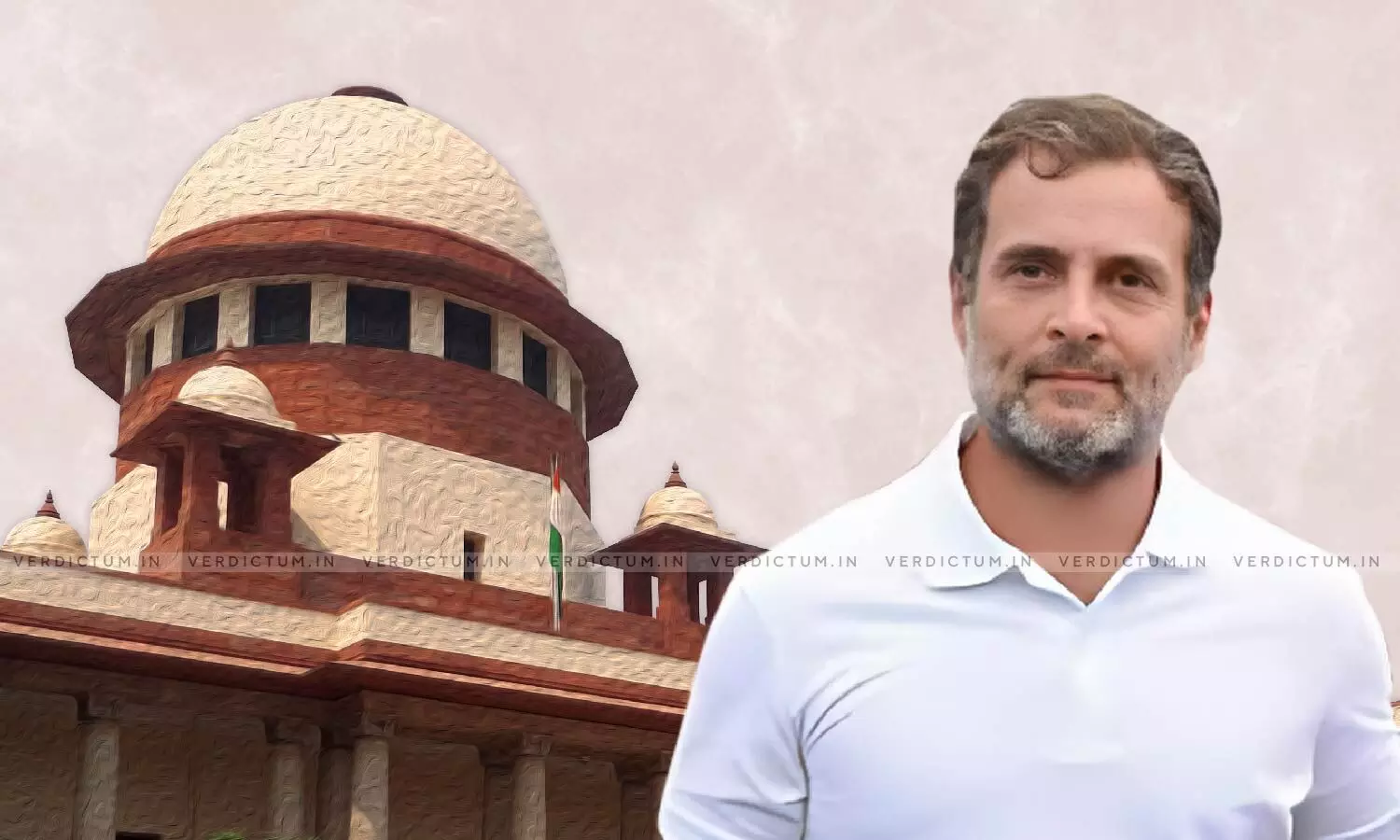
Supreme Court, Rahul Gandhi
“A True Indian Will Not Say This”: Supreme Court Stays Trial In Defamation Case Against Rahul Gandhi Over Remarks On Indian Army Being “Thrashed” In Arunachal Pradesh
 |
|The Court questioned the basis of Rahul Gandhi’s remarks about Chinese incursion, stating that making such claims without credible evidence was inappropriate and observing that no patriotic Indian would make such statements.
The Supreme Court today issued notice on a plea filed by Opposition Leader Rahul Gandhi challenging the summoning order in the Army defamation case and stayed further proceedings for three weeks.
A Bench of Justice Dipankar Datta and Justice A.G. Masih took strong exception to Gandhi's alleged remarks, with Justice Datta asking, "How do you get to know when 2000 sq km was acquired by China? What is the credible material? A true Indian will not say this. When there is a conflict across border... can you say all this? Why can't you ask the question in Parliament?"
Senior Advocate Abhishek Manu Singhvi, appearing for Gandhi, submitted that the statements were innocuous and questioned whether such remarks disqualify one from being the Leader of Opposition. Justice Datta responded, "Say it in the Parliament, why do you have say it on social media?"
Justice Datta pressed further: "Are you there? Do you have any credible material? Why, why, why would you make these statements without having anything?"
In defence, Singhvi said, "I am saying, nobody asked those questions." To this, Justice Datta remarked, "There are 19(1)(a) right, but you are a leader of Opposition."
Singhvi submitted that even if the remarks were somewhat offensive or incorrect, the order taking cognisance did not comply with the principles of natural justice. Justice Datta asked, "Did you raise it before High Court? You went on a different line."
He further pointed out that the High Court had held the complainant was "not a person aggrieved...."
When Justice Datta asked, "This point, S.223(1)?" Senior Advocate Gaurav Bhatia, appearing for Respondent No. 2, replied, "The material was placed, statement of complainant recorded." He also submitted that the High Court had dealt with all the arguments.
The Court issued notice and stayed further proceedings.

Background
The issue arises out of the Allahabad High Court’s judgment dated May 29, 2025, whereby the Court dismissed a petition filed by Congress leader Rahul Gandhi under Section 482 of the Code of Criminal Procedure, 1973. The petition had sought to quash the summoning order issued by a Trial Court in a criminal defamation case lodged against him for alleged derogatory remarks about the Indian Army.
The complaint was filed by a retired Director of the Border Roads Organization, a post equivalent to the rank of Colonel in the Indian Army, who claimed to have been deeply hurt by statements made by Rahul Gandhi during the ‘Bharat Jodo Yatra’. The complainant alleged that Gandhi’s remarks suggested that Indian soldiers were being “trashed and killed” in Arunachal Pradesh during clashes with the Chinese Army. These comments, it was claimed, were not only false and baseless but had the effect of demoralising members of the armed forces and lowering the public’s faith in the Army as an institution.
The Trial Court, after recording the statements of the complainant and his witnesses, concluded that there was a prima facie case under Section 500 IPC and summoned Gandhi to face trial. Challenging this order, Gandhi approached the High Court, contending that the complaint was not maintainable and that the remarks were protected under Article 19(1)(a) of the Constitution guaranteeing freedom of speech and expression.
The High Court rejected these arguments, holding that the complainant qualified as an “aggrieved person” under Section 199 CrPC and had the necessary locus to file the complaint, even though the remarks were not directed at him personally. The Court found no procedural irregularity or illegality in the summoning order and noted that the Trial Court had exercised judicial application of mind. Emphasising that freedom of speech is subject to reasonable restrictions, the Court observed that the right under Article 19(1)(a) does not extend to making defamatory statements against individuals or institutions like the Indian Army. Accordingly, the High Court declined to interfere with the Trial Court’s order.
Cause Title: Rahul Gandhi v. State of U.P. & Anr. (Diary No. 31445-2025)